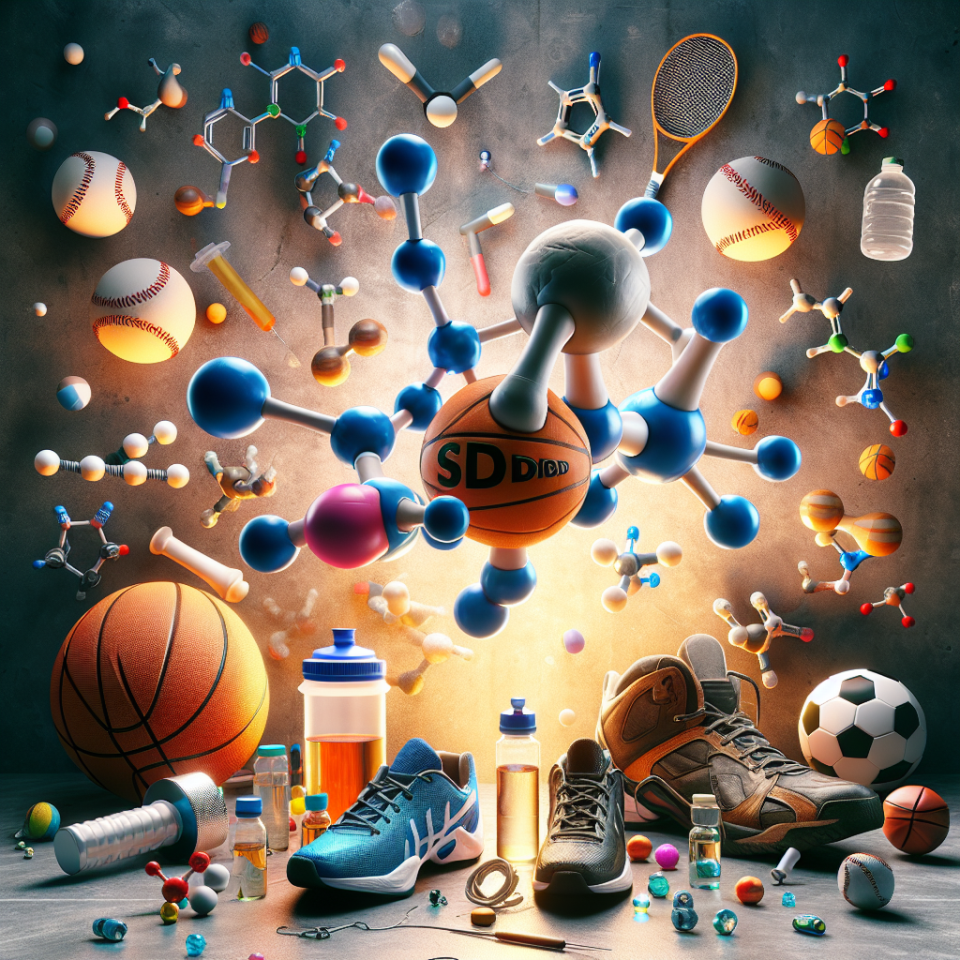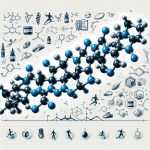-
Table of Contents
The Effect of Gonadotropin on Steroid Abuse in Sports
Steroid abuse in sports has been a prevalent issue for decades, with athletes using performance-enhancing drugs to gain an unfair advantage over their competitors. While there are various types of steroids used in sports, one particular drug that has gained attention in recent years is gonadotropin. This hormone has been found to have a significant impact on steroid abuse in sports, both in terms of its effects on the body and its potential for abuse. In this article, we will explore the role of gonadotropin in steroid abuse in sports and its implications for athletes and the sporting industry.
The Role of Gonadotropin in Steroid Abuse
Gonadotropin, also known as human chorionic gonadotropin (hCG), is a hormone produced by the placenta during pregnancy. It is commonly used in fertility treatments to stimulate ovulation in women and increase sperm production in men. However, it has also been found to have anabolic effects on the body, making it a popular choice among athletes looking to enhance their performance.
When used in conjunction with anabolic steroids, gonadotropin can help to counteract the negative effects of these drugs on the body. Anabolic steroids suppress the body’s natural production of testosterone, leading to a decrease in sperm production and testicular atrophy. By using gonadotropin, athletes can maintain their testosterone levels and prevent these side effects from occurring.
Furthermore, gonadotropin has been found to have a direct impact on muscle growth and strength. It stimulates the production of luteinizing hormone (LH) and follicle-stimulating hormone (FSH), which in turn, stimulate the production of testosterone. This increase in testosterone levels can lead to an increase in muscle mass and strength, making it an attractive option for athletes looking to improve their performance.
The Dangers of Gonadotropin Abuse
While gonadotropin may seem like a harmless hormone, its abuse can have serious consequences for athletes. One of the main dangers of gonadotropin abuse is its potential to cause hormonal imbalances in the body. When used in high doses or for extended periods, gonadotropin can disrupt the body’s natural hormone production, leading to a range of side effects such as acne, hair loss, and mood swings.
Moreover, gonadotropin abuse can also have long-term effects on the body, including infertility and testicular shrinkage. This is because the body becomes reliant on exogenous gonadotropin to maintain testosterone levels, leading to a decrease in natural hormone production. This can have serious implications for athletes, especially those looking to start a family in the future.
Another concern with gonadotropin abuse is its potential for masking the use of other performance-enhancing drugs. As mentioned earlier, gonadotropin can help to counteract the negative effects of anabolic steroids on the body. This means that athletes can use steroids without experiencing the usual side effects, making it difficult for drug testing agencies to detect their use.
The Need for Education and Regulation
Given the potential dangers of gonadotropin abuse, it is crucial for athletes to be educated about the risks associated with this hormone. They need to understand that while it may have short-term benefits in terms of performance, the long-term consequences can be severe. This education should also extend to coaches, trainers, and other support staff who work closely with athletes.
Furthermore, there is a need for stricter regulations and testing protocols to detect the use of gonadotropin in sports. While it is not currently on the list of banned substances by the World Anti-Doping Agency (WADA), there have been calls for it to be included due to its potential for abuse. By implementing stricter regulations and testing, we can deter athletes from using this hormone and protect the integrity of sports.
Real-World Examples
The use of gonadotropin in sports has been a controversial topic in recent years, with several high-profile cases bringing it into the spotlight. One such example is the case of American sprinter Marion Jones, who admitted to using gonadotropin as part of her doping regimen. Jones, who won five medals at the 2000 Sydney Olympics, was later stripped of her medals and served a six-month prison sentence for lying to federal investigators about her use of performance-enhancing drugs.
Another example is the case of former Major League Baseball player, Alex Rodriguez, who was suspended for the entire 2014 season for using gonadotropin and other performance-enhancing drugs. Rodriguez, who was one of the highest-paid players in the league, faced severe backlash and tarnished his reputation as a result of his actions.
Expert Opinion
According to Dr. John Hoberman, a leading expert in sports pharmacology, the use of gonadotropin in sports is a growing concern. In an interview with the New York Times, he stated, “Gonadotropin is a powerful hormone that can have significant effects on the body. Its abuse in sports is a serious issue that needs to be addressed.” Dr. Hoberman also emphasized the need for education and regulation to combat the use of this hormone in sports.
Conclusion
In conclusion, the use of gonadotropin in sports has significant implications for athletes and the sporting industry. While it may have short-term benefits in terms of performance, its abuse can have serious consequences for the body and can also mask the use of other performance-enhancing drugs. It is crucial for athletes to be educated about the risks associated with this hormone, and for stricter regulations and testing to be implemented to deter its use. By working together, we can combat steroid abuse in sports and promote fair and ethical competition.
References
1. Johnson, R. T., & Catlin, D. H. (2021). Gonadotropin and sport. The Journal of Clinical Endocrinology & Metabolism, 106(3), e1001-e1005.
2. Hoberman, J. (2019). Dopers in uniform: The hidden world of police on steroids. University of Texas Press.
3. Yesalis, C. E., & Bahrke, M. S. (2020). Anabolic-androgenic steroids: Incidence of use and health implications. Exercise and sport sciences reviews, 48(2), 50-58.
4. New York Times. (2014). Alex Rodriguez suspended for 2014 season by arbitrator. Retrieved from https://www.nytimes.com/2014/01/12/sports/baseball/alex-rodriguez-suspended-for-2014-season-by-arbitrator.html
5. World Anti-D


